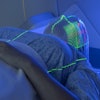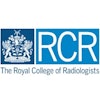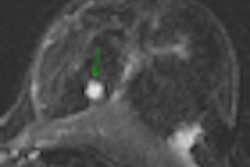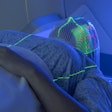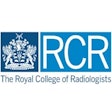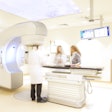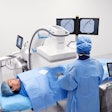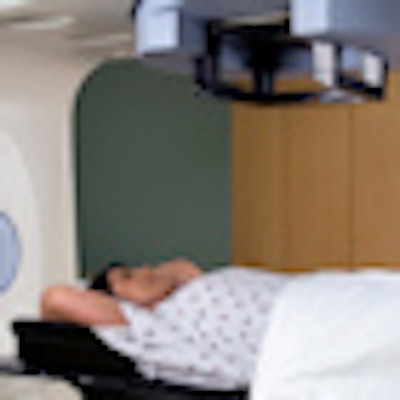
After breast-conserving surgery, radiotherapy can halve the breast cancer recurrence rate and reduce breast cancer death by about a sixth, according to the Early Breast Cancer Trialists' Collaborative Group (EBCTCG). Additionally, the proportional benefits vary little between groups, but the absolute benefits from radiotherapy vary substantially from patient to patient.
Breast-conserving surgery removes breast cancer, but some tumor foci might remain and could lead to recurrence if untreated. Radiotherapy is a way to reduce recurrence, but by how much and for what types of patients have been unclear. The EBCTCG, a group of more than 200 researchers from all over the world, published a report in the Lancet (19 October 2011, online first) that answered some of those questions.
In their meta-analysis of 10,801 women in 17 randomized trials, the researchers -- headed by the EBCTCG secretariat located in Oxford, U.K. -- found overall radiotherapy reduced the 10-year risk of any first recurrence from 25% to 19.3% and reduced the 15-year risk of breast cancer death from 25.2% to 21.4%.
In women with confirmed node-negative disease, radiotherapy reduced recurrence risk from 31.0% to 15.6% and reduced mortality risk from 20.5% to 17.2%. The absolute recurrence reduction varied according to age, grade, estrogen-receptor status, tamoxifen use, and extent of surgery.
In women with confirmed node-positive disease, radiotherapy reduced the 10-year recurrence risk from 63.7% to 42.5% and the 15-year risk of breast cancer death from 51.3% to 42.8%. Overall, about one breast cancer death was avoided by year 15 for every four recurrences avoided by year 10, and the mortality reduction did not differ significantly from the overall relationship in any of the prediction categories for node-negative or node-positive disease.
"The overall findings from these trials show that radiotherapy after breast-conserving surgery not only substantially reduces the risk of recurrence, but also moderately reduces the risk of death from breast cancer," the researchers wrote. "These results suggest that killing microscopic tumor foci in the conserved breast with radiotherapy reduces the potential for both local recurrence and distant metastasis."
The EBCTCG found proportional and absolute reductions in the annual recurrence rate are largest in the first year, but the recurrence rate continues to be somewhat lower throughout the first decade. The reduction in breast cancer death rate becomes definite only after the first few years and appears to continue into the second decade.
They also found the absolute recurrence reduction with radiotherapy is lower in the more recent postlumpectomy trials, but even for women with node-negative disease, the predicted absolute 10-year recurrence reduction with radiotherapy exceeded 10% in most women and exceeded 20% in some.
Almost a quarter of women with node-negative disease were in trials where sector resection or quadrantectomy, rather than lumpectomy, was undertaken and tamoxifen was not the trial policy. Recurrence rates were lower than those for women with similar characteristics in trials in which lumpectomy was performed. Most of the trials of radiotherapy after lumpectomy required negative surgical margins for invasive cancer. The researchers also point out that pathological techniques have become more sensitive since the women entered these trials, and therefore some surgical margins would probably have been positive.
"Whether the lower recurrence rates recorded in trials of radiotherapy in women given sector resection or quadrantectomy are simply the result of a reduction in the proportion of women with positive margins, or whether there is further benefit to be derived from more extensive surgery, is unknown," the authors noted.
The 15-year reduction in risk of breast cancer death was about as big in node-negative disease with large predicted absolute recurrence benefit as it was in node-positive disease, the researchers wrote. In node-negative disease with intermediate or lower predicted recurrence benefit, the mortality reduction was smaller and neither differed significantly from zero.
However, "screening, surgery, pathology, radiotherapy, and systemic therapy have all changed substantially since most of the women entered these trials, so the absolute recurrence reduction with radiotherapy in future patients might differ greatly from that recorded in these trials," they wrote.
EBCTCG's finding that radiotherapy roughly halved the recurrence rate after breast-conserving surgery in a wide range of patients with very different absolute risks suggests radiotherapy might also roughly halve the recurrence rate in future patients given breast-conserving surgery but who are not comparable with the women included in the trials the group analyzed.
"In these future patients, a reasonable way to predict the absolute recurrence benefit of radiotherapy would be to construct contemporary estimates of the absolute risk of first recurrence of any type and to assume that radiotherapy will approximately halve it," they stated.

